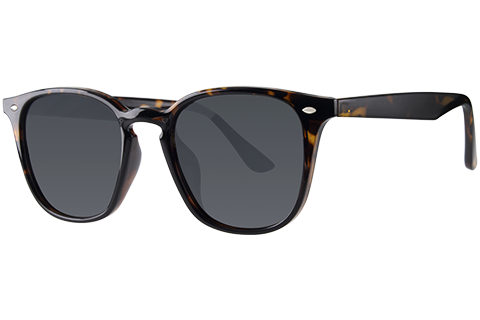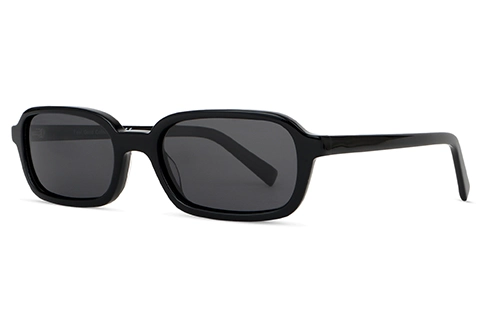Reasons why you should wear sunglasses every day
There are many reasons for you to wear sunglasses every day. They offer multiple benefits. Here, we have listed the top advantages of wearing sunglasses regularly.
Protection from harmful UV rays
The sun emits UV radiation that can cause severe damage to your eyes, leading to conditions such as cataracts, macular degeneration, and even eye cancer. By wearing sunglasses with UV protection, you can create a barrier that blocks out harmful UV rays and significantly reduce your risk of developing these eye conditions.
Prevention of eye strain
Exposure to bright sunlight can result in eye strain, discomfort, and headaches. By wearing sunglasses, you can reduce the need to squint and strain your eyes, making your outdoor activities more enjoyable and less tiring.
Preservation of eye health
Prolonged exposure to UV rays can contribute to the development of various eye diseases. Sunglasses act as a preventive measure by safeguarding your vision and overall eye health.
Protection from wind and dust
Sunglasses save your eyes from dust, wind, debris, and whatnot. They act as a safety shield between your eyes and your surroundings.
Enhanced comfort and visual clarity
Sunglasses not only reduce glare but also improve visibility in bright conditions. This makes it easier to see clearly and enhances your comfort while driving or participating in outdoor sports.
Style Statement
No one can refuse the impact a dashing pair of sunglasses can have on your overall look. They can make you stand out; sunglasses are the ultimate fashion accessory. They can instantly enhance your style and give you that effortlessly chic appearance. The perfect pair of sunglasses can do magic for your look.
FGC Kiki 11 Black 53 Polarised
Achieve an effortlessly chic appearance with these sunglasses, boasting a glossy black rectangular frame that effortlessly blends sophistication with a laid-back vibe. The delicate structure imparts a subtle elegance, while the lustrous black frame commands attention, striking the perfect balance of style and substance. Crafted from lightweight, premium-grade acetate, these sunglasses are the epitome of durability and portability. Featuring fixed nose pads and curved temple tips, they provide optimal comfort and a secure fit for an all-around stylish look.
Is it worth to spend on sunglasses?
It’s 100% worth it! Investing in a high-quality pair of sunglasses is undeniably worthwhile. They shield your eyes from harmful UV rays, preventing potential eye damage and reducing the risk of cataracts and other eye-related issues. Polarised sunglasses provide protection against glare, reducing eye strain and discomfort in sunny conditions.
Additionally, a great pair of sunglasses can be a stylish accessory that complements your overall look. So, while the initial cost may seem higher, the long-term benefits of eye health and style make it a wise investment. Check out the latest collection of branded sunglasses at great prices at Feel Good Contacts now!
When should you not wear sunglasses?
There are certain situations when you may want to avoid wearing sunglasses:
- When staying indoors: You can skip wearing sunglasses whilst indoors as the chances of harmful sunrays reaching your eyes are almost zero.
- Under low-light conditions: Wearing sunglasses in low light can be dangerous. In environments with dim lighting or low visibility, sunglasses can limit your ability to see clearly and may pose a safety risk.
- During night-time: You should avoid wearing sunglasses at night. Putting on sunglasses during nighttime can be hazardous as they reduce visibility, making it hard to see properly in the dark.
Disclaimer: The advice in this article is for informational purposes only and does not replace medical care or an in-person check-up. Please check with an eyecare professional before purchasing any products or remedies. For information on our article review process, please refer to our Editorial Policy.

 Offers
Offers Account
Account
 Favorite
Favorite
 Basket
Basket

 OFFERS
OFFERS


















